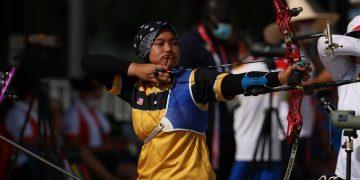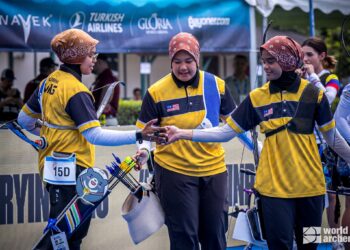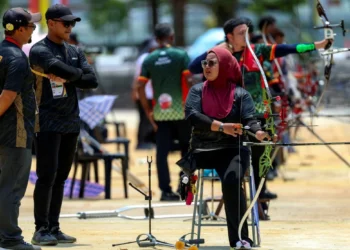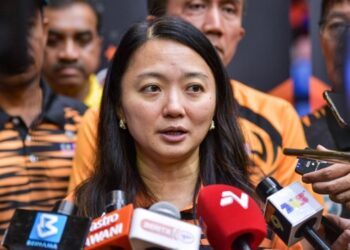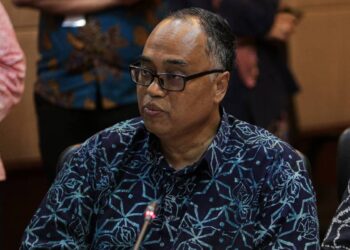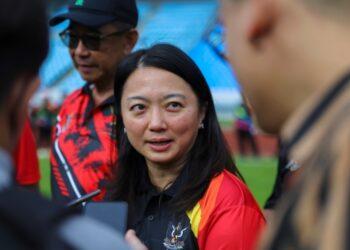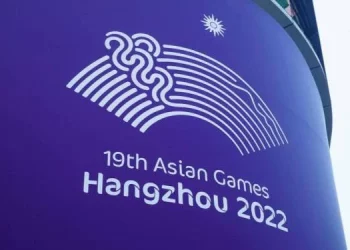According to New Straits Times, Podium Programme — a full-time training programme introduced by NSC to groom Malaysia’s national athletes — was not given an allocation in Budget 2022.
As the government decided to focus on COVID-19 recovery initiatives, the sports industry was only allocated a total of RM289 million in Budget 2022. The Vibes reported that this is close to a 70% reduction from the previous year.
As a result, Youth and Sports Minister Datuk Seri Ahmad Faizal Azumu announced in December that the NSC has decided to reduce its number of full-time athletes from 432 to 288 in 2022.
They disclosed that they are only retaining athletes with the best potential to win medals at the SEA Games in Vietnam, Commonwealth Games in Birmingham, and the Asian Games in Hangzhou this year.
Unfortunately, the downsizing is seeing some high-profile athletes getting axed from their full-time contracts, and without much warning
Malaysia’s first diving world champion Cheong Jun Hoong was one of the early casualties, axed due to “lack of quality results since 2018” as well as her age, and a history of knee injuries.
When contacted by New Straits Times after the NSC announcement was made, Cheong said she was not aware of the decision and did not provide a comment.
In a statement on social media today, 4 January, the 31-year-old announced her retirement, hastened by the fact that her contract will not be renewed.
Malaysia Swimming Federation secretary-general Mae Chen revealed that the national swimming squad was hit hard by the budget cuts — with 10 swimmers axed and only Welson Sim, Khiew Hoe Yan, Arvin Singh, and Phee Jinq En retained — but still hopes to reinstate more swimmers if they can prove their performance in upcoming events.
Chen also disclosed that the national athletes who have been dropped will no longer receive allowances or accommodation, nor be allowed to use the National Sports Institute’s sport science facilities, but will still be allowed to continue using facilities in Bukit Jalil and train under their national coaches.
Another elite athlete, national squash player Low Wee Wern, was also among those dropped from the programme at last minute’s notice
“It definitely feels like I’ve been used and then tossed away,” said the former world number five, in an interview with Timesport on 1 January, as quoted by New Straits Times.
She recently underwent a knee surgery in a bid to recover for this year’s Asian Games and Commonwealth Games.
“I have given up so much for the country and made so many sacrifices throughout the years… And it’s just really frustrating the way the NSC have done things as they didn’t even have the decency to sit down and have a discussion with me about it,” she said.
“I’m not feeling bitter. There is no point to be bitter, but I just feel disrespected after everything I’ve done. After all, I’ve proven that you can reach the top five in the world despite training in Malaysia and not going overseas.”
Amidst worry for the future sports in Malaysia, Ahmad Faizal said the move was necessary to ensure only “quality athletes” continue to get the best support.
The Youth and Sports Minister urged dropped athletes to prove themselves if they want to regain their places in the full-time training programme.
In the meantime, he said the ministry will continue working on securing additional allocations and funding to bring more athletes back.
Meanwhile, the Olympic Council of Malaysia (OCM) — along with over 50 affiliates and national sports associations — is urging the goverment to completely reconsider the cuts.
OCM president Tan Sri Norza Zakaria Norza stressed that the drastic reduction in funding is unfair, especially for the athletes who have sacrificed a lot for the country.


